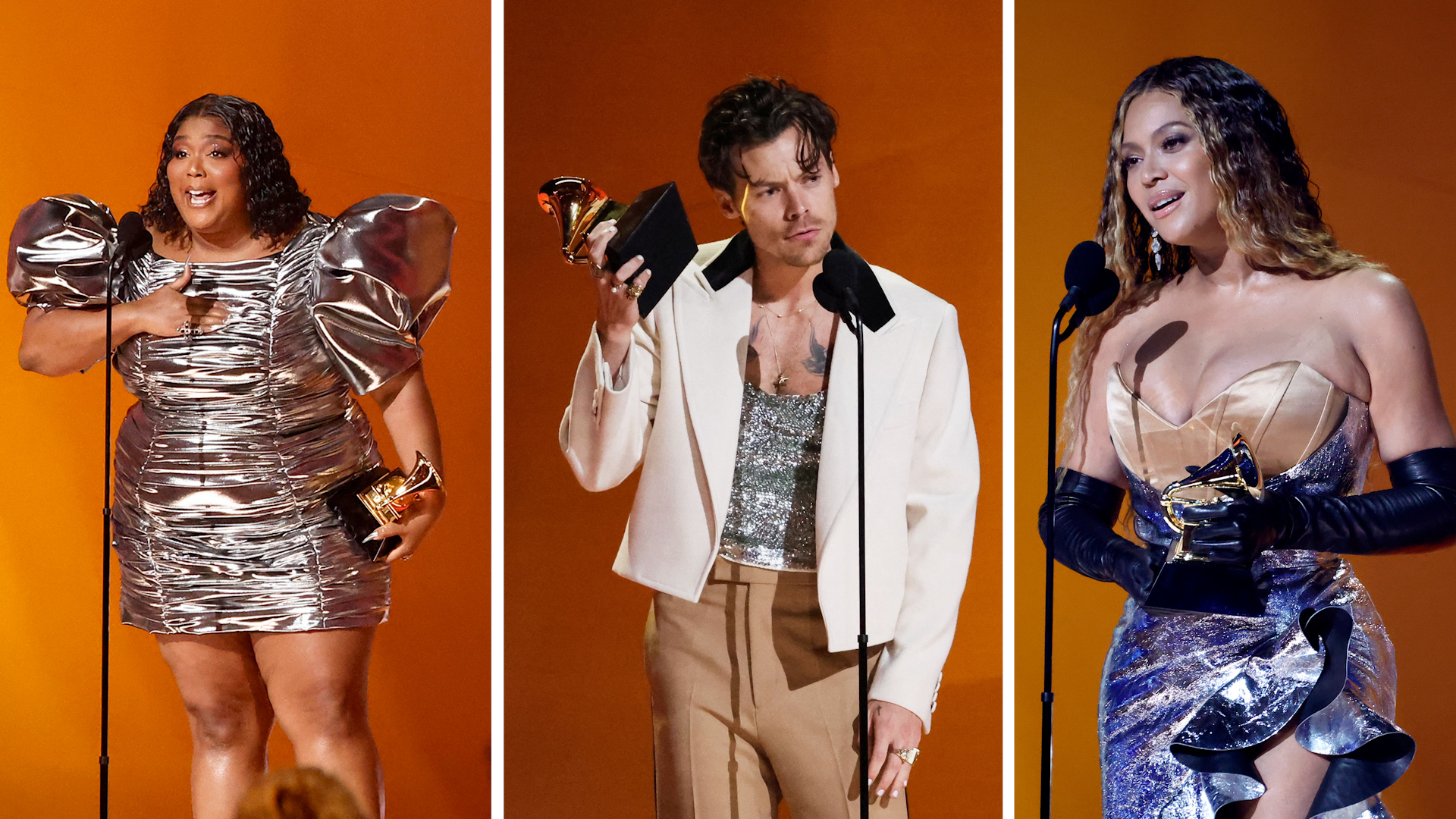
Even on the night when she broke the record for most Grammy wins ever, Beyoncé’s triumphant album “Renaissance” loses top honors to Harry Styles
Nope. The Grammys must Grammy. The night’s biggest prize ended up going to “Harry’s House” by Harry Styles, the former One Direction heartthrob who has since remade himself into America’s leading glam-pop lust object. “There is no such thing as ‘best’ in music,” Styles said from the stage, cradling his new trophy, exuding a humility that felt as genuine as his statement felt factual.
So if we take “best” out of the equation, Beyoncé’s consolation prize was “most,” and when she won best electronic/dance album for her gorgeous, disco-infused “Renaissance,” she instantly became the biggest Grammy winner of all time with 32 golden gramophones to her name. Why does that feel like not enough? Because for the past 20 years and counting, the Recording Academy has routinely failed to recognize Black artists at their creative peaks — and to her credit, Beyoncé keeps updating that peak with each new album. When Adele bested Beyoncé the last time both were nominated for this award back in 2017, Adele asked reporters after the show, “[What] does she have to do to win album of the year?” The question stands.
Aside from that centrifugal swirl of history-making and embarrassment, the rest of this year’s Grammy ceremony seemed to lack coherence as badly as it lacked momentum. The show was handed over to a new generation of producers a few years ago, but with show’s broadcast viewership continuing to plummet year after year, the telecast has fallen back on its most tedious performance tropes: obligatory gospel choirs, way too many backup dancers, duets between singers of different generations. The fact that the biggest names in the room — Beyoncé, Taylor Swift, Adele, Kendrick Lamar — had declined to perform didn’t help either.
That left the rising stars to do the heavy lifting. Bad Bunny, whose “Un Verano Sin Ti” was nominated for album of the year, seemed entirely up to the task, opening the show with a blitz of high-spirited merengue rhythms that instantly lifted everyone out of their seats, (including Swift who, at this point, might just attend awards shows for the dancing). As for Styles, his big performance was cluttered with dancers dressed like normies, perhaps to make his tinsel-shag jumpsuit look extra fabulous, but who ultimately made the whole thing feel crowded and unfun.
And while “crowded and unfun” doesn’t have the same ring as “music’s biggest night,” it certainly rings more true. The Recording Academy has increased its category count this year to a brain-numbing 91, and in the top categories, the winners skewed conservative. Blues legend Bonnie Raitt won song of the year for “Just Like That,” beating out Adele, Styles, Swift and others to the great surprise of everyone who doesn’t watch the Grammys regularly. Meantime, Lizzo’s “About Damn Time” won record of the year while 23-year-old jazz singer Samara Joy was named best new artist.
The starry names didn’t go home empty-handed, though. Adele won best pop solo performance for her gusting and emotive power-ballad “Easy On Me.” Bad Bunny won best música urbana album. “When you do things with love and passion everything is easier,” the Puerto Rican rapper said while accepting his award.
Lamar’s pensive “Mr. Morale and the Big Steppers” won for best rap album — his third trophy in that category. And while many have criticized the Grammys for failing to properly recognize rap music over the years, the show’s organizers tried to make amends by booking a sprawling performance celebrating the 50th anniversary of hip-hop with rap icons LL Cool J and Questlove presiding over a posse cut for the ages — a medley that included Public Enemy, Queen Latifah, Too Short, Big Boi, Method Man, Lil Baby, Scarface, Salt N Pepa and many more. It felt like a worthy tribute to a style of music the Recording Academy has seemingly gone out of its way to overlook year after year.
Comedian Trevor Noah made his third consecutive appearance as host and surfed the cocktail tables near the front of the stage during his opening monologue, delivering at least one good joke: “Every song on TikTok that you hear? There are people who made them.”
There were also some awkward attempts to make the awards more personable. Performers were introduced by their family and friends, some of which had weird wedding-toast vibes. There were also interstitial videos where fans argued for their album of the year faves. These were not Grammy voters, though, and their enthusiasm seemed to highlight the disconnect between how the music industry is seen and how it sees itself.
Grammy night has never been about what the fans are hearing. It’s always been about what the music business wants to see when it looks in the mirror. And this year, it felt like we’ve all seen enough.






